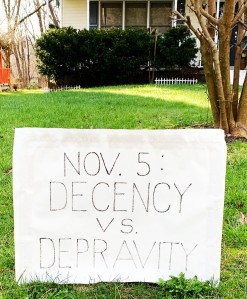“The worst miscarriage of justice in British history,” it’s been called — “an affront to justice.” Hundreds of innocent people convicted on false evidence. Not a 16th Century witch hunt, but one in the 21st.

This true story was dramatized in a multi-part Masterpiece Theater production, “Mr. Bates vs The Post Office.” A disturbing window into an aspect of human nature.
The British Post Office introduced a new Fujitsu computer system called “Horizon,” for local postal outlets, run by private individuals (“sub-postmasters”), mostly as adjuncts to other businesses like little stores. Horizon started showing widespread account deficits. The Post Office’s “help line” was useless in sorting this out (and lied to callers that they were alone having these problems). Hundreds were forced to repay amounts ranging into tens of thousands; stripped of their licenses; nearly a thousand criminally prosecuted for theft and fraud. The P.O. insisted their contracts made them completely responsible. Many lives were destroyed. Several committed suicide.
When this began to unfold, you’d think someone high up in the P.O. would say, “Wait! This makes no sense! Something’s messed up here!”
But no.
A question that came up in the dramatization was — where did the money go? Not to the sub-postmasters, many being bankrupted by the repayment demands. But a question that somehow never arose was — how could those tiny postal outlets even have turnover in such large amounts in the first place?

It made, indeed, no sense at all. There was never anything to indicate that any money was actually missing. The “deficits” were just figments of Horizon computer glitches. That should have been obvious from the get-go.
Yet the Post Office muckety-mucks went into a bureaucratic crouch, refusing to entertain the possibility of anything wrong with the system, insisting all the prosecutions were perfectly proper. Oblivious to reason and the injustice. This continued for a decade. They went through the motions of an internal investigation, an outside review, and a mediation process for victims — all jerry-rigged to bury the truth and produce the desired results. Officialdom in all its gory glory.
It was a human unwillingness to acknowledge error. They also wanted to protect the P.O.’s “brand” from any opprobrium. Perhaps arguably understandable had there been much chance they’d succeed. But with hundreds of victims all across the country, the crap was bound to hit the fan somehow, eventually. Damaging the “brand” far more than an honest handling of the matter in the first place would have done.

They should have quickly realized something was wrong, and gotten out in front of it, doing everything possible to make things right. Instead they doubled down, violating the first rule of holes: if you’re in one, stop digging.
I’ve previously written that all human sins are ultimately rooted in arrogance. And reviewed a book titled Assholes – A Theory, also centralizing arrogance. The “Horizon” story is illustrative — behavior quintessentially arrogant. Asshole behavior.
Being fallible, I make mistakes in my own business. I try to correct them. But government bureaucracies have little impetus to do so, free to behave arrogantly instead. This is a key element of a traditional antipathy toward governmental power.
In the end of a very long and tortuous story, the sub-postmasters, led by the indefatigable Mr. Bates, won a sweeping judicial victory. That “affront to justice” quote came from appeal judges, voiding some of the many criminal convictions. The real criminals, it was now clear, were the Post Office bureaucrats.

Led by Paula Vennells. She almost seemed like a human being — almost. At the end, she was shown in church (she was also a pastor — a woman of God!) at last apologizing to the legions of people who’d suffered so cruelly. Yet still disclaiming criminal responsibility. And: her lips didn’t move. The contrition was only in her head.
Vennells was not prosecuted. Instead, awarded a CBE (“Commander of the British Empire,” a step below knighthood). Vennells later renounced the CBE, a gesture without effect; but King Charles has revoked it.
Yet even now the story’s not over. After the TV drama aired, the BBC News had a brief item quoting Vennells labelling the false numbers spewed out by Horizon not “bugs” but “exceptions” — to make them sound “non-emotive.”
The hole so deep no light can reach the bottom.












































